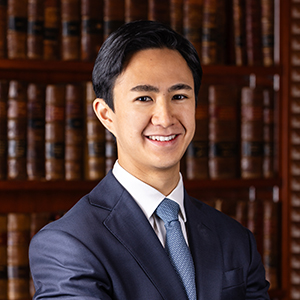Wadhuram Kewalramani v Parmanand Kewalramani [2024] 6 HKC 372, [2024] HKCFI 2225 (Sebastian Leung)
Sebastian Leung represented the plaintiff in Wadhuram Kewalramani v Parmanand Kewalramani [2024] 6 HKC 372, [2024] HKCFI 2225.
The plaintiff applied for default judgment against the defendant seeking specific performance of an oral agreement. The application was adjourned sine die with liberty to restore when it was first heard on 11 January 2024. On 15 March 2024, the Statement of Claim endorsed to the Writ was substantially amended. The Amended Writ together with the Amended Statement of Claim was duly served on the defendant on 25 March 2024. The defendant did not file his Acknowledgment of Service with an Intention to Defend nor Defence to the Amended Statement of Claim in time or at all. The plaintiff’s pleaded case was inter alia that (i) The plaintiff and KK (on the one part) and the defendant (on the other part) reached an oral agreement regarding the separation of their participations in two companies which operated their family business, and in which they each owned 1/3 of the issued shares (‘the two Companies’); and (ii) The defendant breached the oral agreement, the main terms of which the plaintiff sought to enforce entailed dealing with the assets of the two Companies. At the hearing of the application on 23 August 2024, the plaintiff informed the Court that KK had passed away in May 2021.
Held, dismissing the application with no order as to costs:
(1) Upon an application for default judgment under O 19 r 7 of the Rules of the High Court (Cap 4A), the Court should give judgment where the plaintiff appeared entitled to on his statement of claim without admitting any evidence, but the Court retained discretionary power whether to give judgment (para 6).
(2) KK was inextricably tied to the performance of the whole scheme of splitting the family business as embodied in the oral agreement. KK (or his estate) was jointly entitled, as one of the promisees together with the plaintiff, to the reliefs sought by the plaintiff. The Court could not order the defendant to deal with properties belonging to the two Companies without all the shareholders being present as parties to this action (para 20).
(3) KK (or his estate) was a party whose joinder was mandatory and also necessary to ensure that all matters in dispute could be effectually and completely determined within the meaning of O 15 rr 4(2) and 6(2)(b)(i) (paras 22, 24).
(4) KK (or his estate) was not made a party to this action. The action was thus not properly constituted. The Court could not, and as a matter of discretion should not, grant the default judgment sought (para 27).
[The above is excerpted from the headnote to the report in HKC.]


